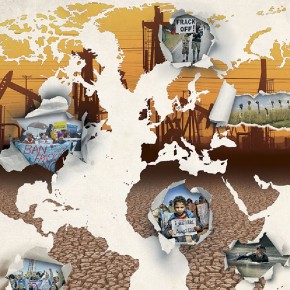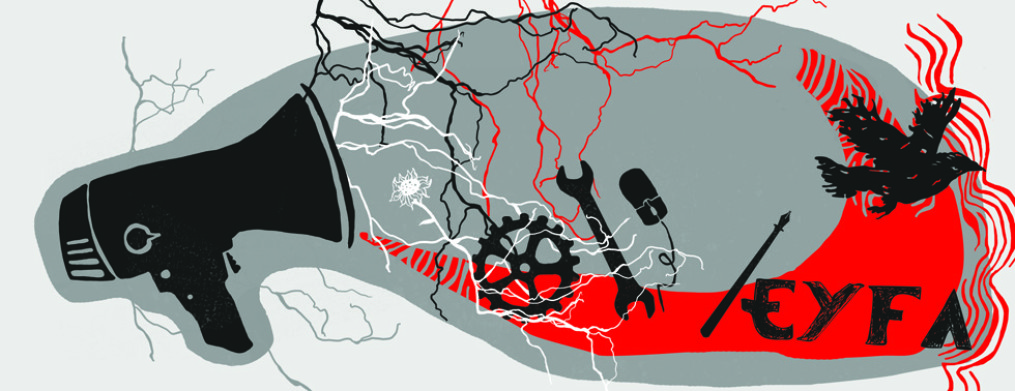 The stories have been chosen because they contribute something distinctive, something useful to other movements, or something special that deserves to be shared.
The stories have been chosen because they contribute something distinctive, something useful to other movements, or something special that deserves to be shared.
Samuel Martín-Sosa (coord.)
Free download here: https://www.ecologistasenaccion.org/article30043.html
Spanish version of this article here
This book aims, first and foremost, to be a source of inspiration for anti-fracking activism, a means to make the strength and determination of our struggle more visible and, in addition, a gesture of solidarity with those places in this world where activists have it hardest. It is also an attempt to bring together the actions and visions of people and movements who don’t know each other, but who all refuse to accept the inertia of the dominant dialectic, which sells us the idea that our society needs to continue to extract hydrocarbons to avoid economic collapse. Society is awakening and growing aware of the fact that it is precisely continuing along this path that will lead to its collapse.
In this book, we present a selection of 15 iconic struggles at very different levels. The majority of the stories are told by their protagonists, in the first person, and it could not have been any other way. There are personal battles in the courts, like that of the Lisa Parr family in Texas, or Diana Daunheimer in Canada; battles at the local level to secure the right to prohibit the practice, such as that in the town of Dryden in New York State. Romania and Poland inspire us with a stoic struggle by peaceful farmers against corporate power protected by a repressive government. We also find campaigns that sought an alliance of different sectors to form a united front, like in the account contributed by Neuquén Multi-Sectorial Platform Against Fracking, in Argentina. Or initiatives that spread like wildfire, like the decision to ‘lock the gate to mining companies in Australia, the ‘Frack Free Municipalities’ campaign in Spain, and the Korbach Resolution in Germany. These and other iconic and inspiring battles are this book’s main contribution to global fracking resistance.
The stories have been chosen because they contribute something distinctive, something useful to other movements, or something special that deserves to be shared. Many other stories have been left out of this book. They are equally valuable stories full of courageous experiences that I hope will not be forgotten.
The book includes stories from Europe, North America, South America, Africa, and Oceania. Asia is the real missing element. I have tried everything to include a case of community resistance from China, a country with vast reserves that is already producing shale gas commercially. I have asked repeatedly, through about a dozen different contacts, of various individuals and NGOs working with China on a variety of projects related to energy and the environment. But all of my efforts have been to no avail. I have not managed to get in contact with any resistance movements because none of the people I asked are aware of the existence of any. Social resistance is not an easy topic in China, as we all know. However, the final conclusion at which I arrived was that in those rural areas over which this threat hovers, communities are more preoccupied with other, more visible concerns, and that as a result, this issue, at the moment, does not generate social alarm in that country. This is deeply troubling, and here I would like to invite the global anti-fracking movement to place China, and other countries where no mobilisation yet exists, on the political agenda. Only when we have a global fracking ban will we truly have won.
Global anti-fracking resistance is alive and well. The first chapter analyses how we have arrived at this point, the main achievements of the movement and its potential in today’s multi-crisis context.
This book also aims to be a breath of fresh air, which is essential to keep spirits up during the fight. Toward the end, we include a selection of anecdotes and curious facts that the unruly arrival of fracking is leaving us with.
In its final chapter, the book contains a simple pocket battlecard to remind those who question this resistance movement that there is no shortage of reasons to oppose fracking.
